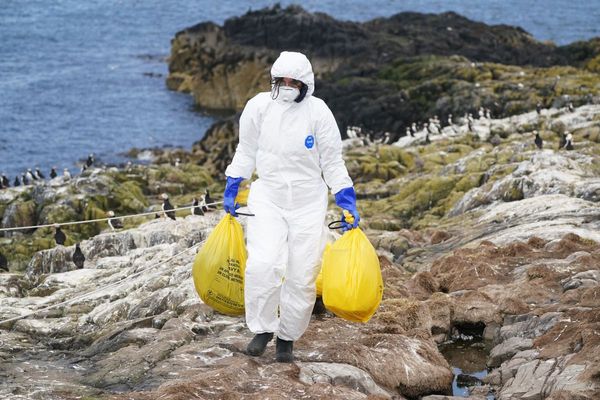Avian flu killed 13,000 barnacle geese on the Solway last year.
NatureScot has revealed the devastating figure as it prepares for the return of Scotland’s seabird colonies across the summer.
The virus wiped out large numbers of birds across the region in the winter of 2021/22, with the Svalbard barnacle geese population severely hit.
However, officials say that hasn’t been the case this year as the survivors have returned.
Across Scotland, there have been 2,800 birds across 50 species reported sick or dead – not all as a result of avian flu – since late December, although it is believed this is only a proportion of the overall numbers killed.
Steps being taken ahead of the summer by Scotland’s Avian Flu Task Force, led by NatureScot, include expanding the existing surveillance network to better understand the impacts of avian flu and setting up a network of rapid responders to collect samples.
They will also be working with the Animal and Plant Health Agency to sample the Solway geese to understand how they have developed a resistance to avian flu.
NatureScot’s deputy director of nature and climate change, Eileen Stuart, said: “Over the winter we have seen a mixed picture, with some geese faring well and other populations suffering.
“The work we are doing on sampling will help us better understand why this might be the case and whether immunity/resistance is building up in the different populations.
“Alongside this, a huge amount of work has been going on in the background with a wide range of partners to prepare for the return of our seabirds across Scotland.
“While we cannot predict what the impact of the virus will be this summer, these preparations will ensure that we can take swift co-ordinated action if necessary to give our seabirds the best possible chance.
“Over the coming month, we will be communicating directly with stakeholders to give further detail, including providing a range of guidance to enable landowners and managers to prepare for the season.”
It comes after a protection and surveillance zone set up in Stranraer after an outbreak in January was ended.










